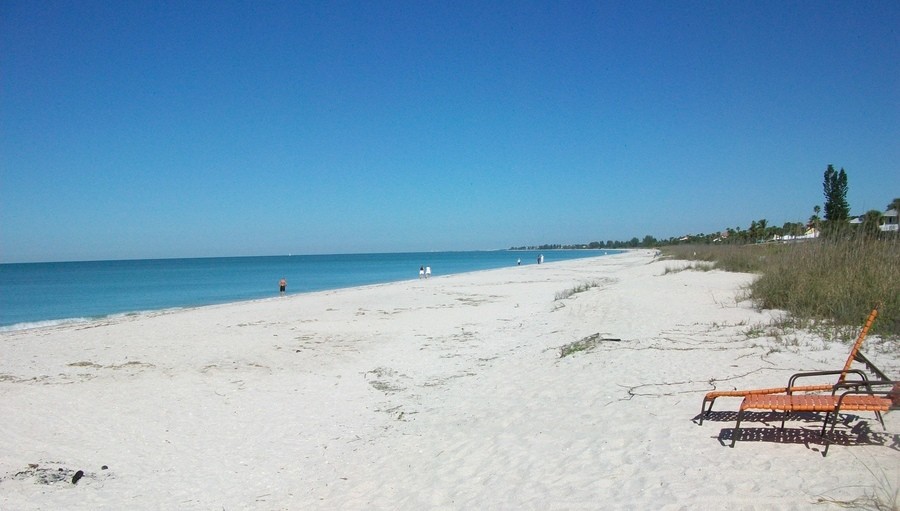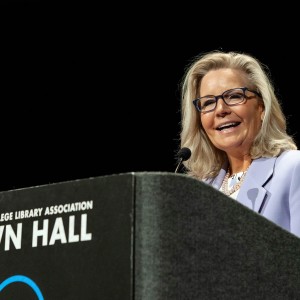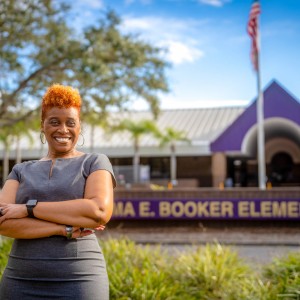SRQ DAILY Aug 12, 2017

"Today, less than two decades into this century, every pillar of our scientific infrastructure is under attack."


Florida Agriculture Commissioner Adam Putnam swung through Sarasota this week for a campaign fundraiser, a reminder the 2018 election cycle has already started for serious candidates. Putnam, who aspires to be Florida’s next governor, clearly falls into that category, and it’s not clear anybody in his party can yet say the same.
“I don’t think there’s anybody on the Republican side that can challenge him,” says John Saputo, owner of Gold Coast Eagle Distributing, where the Tuesday fundraiser was held. “Adam has paid his dues in the state.”
I can't argue. Putnam, a native Floridian, graduated out of college and into politics, winning a seat in the Florida House of Representatives at age 22, the youngest person ever to do so. In the year 2000, he made an ambitious leap into federal politics and won a Congressional seat the first year he could. In 2010, he made his move for statewide office, humbly seeking the least prominent post on Florida’s Cabinet and easily winning his current post.
Of course, another strange thing happened in 2010 that reshaped Florida’s political landscape dramatically, especially for the GOP. It brought the rise of the Tea Party, allowing Marco Rubio in his first statewide run to knock out then-popular Gov. Charlie Crist in a bid for US Senate. But less noticed then and more important now, it saw the entry of virtually anonymous Naples businessman Rick Scott into the governor’s race, challenging “paid-his-dues” Attorney General Bill McCollum. Scott would stun the establishment and defeat McCollum in the primary before winning the governor’s mansion twice.
Since then, Florida GOP voters picked businessman Donald Trump over Rubio, now a “Washington insider,” in the Republican primary last year. Trump, of course, also won the state in November on his way to the White House. Notably, the Scott wing of the party helped assemble those victories as well.
That’s likely why it’s hard to find much of Putnam’s political biography on his own website. Besides mentioning his current post, there’s more about his church than the fact he’s held elected office for decades. That alone shows how much politics has changed.
So will Republican voters this year pick a career pol to be their gubernatorial nominee? Saputo, a Scott convert himself, still sees the advantages of an experienced lawmaker in charge. “He will be able to work with the hardliners and the moderates,” Saputo says.
Pat Neal, a Manatee County builder and Putnam supporter, believes it’s too late for another candidate to challenge Putnam in the primary. He figures affable Putnam won’t be as vulnerable to an outsider challenge as McCollum. As for other established pols, he hopes House Speaker Richard Corcoran decide to run for a different post like Attorney General, and candidates like state Sen. Jack Latvala haven’t shown the penchant to capture a statewide base. “What Adam needs to do is raise enough money to ensure his inevitability,” Neal says. “I think he’s doing that.”
Indeed, with $2.2 in donations to Putnam’s account and another $13 million to a pro-Putnam PAC, his money will hard to match.
Could someone label Putnam as a squishy moderate, as Rubio did to Crist? Maybe, but anti-incentive crusader Corcoran still must duke it out with US Rep. Ron DeSantis for that title. Of course, some still itch for a primary fight. And Scott, now on a US Senate quest, reportedly looked for a businessman last year to rock the field.
But state Rep. Joe Gruters, also chairman of the Republican Party of Sarasota County and a stalwart Scott and Trump supporter, figures the field is set. But he also believes any of the four major GOP candidates in the running could win the nod. “Adam has a little bit of an advantage,” he acknowledges, “but at the end of the day, it’s whoever runs the bets campaign.”
That’s always true, but it’s also especially important. now, as a solid campaigner will be what the party needs. Mid-terms typically prove unkind to the party holding the White House, and while Florida voters haven’t elected a Democrat as governor since Lawton Chiles won re-election in 1994, the Dems have more credible candidates running than has been seen in a generation. Even if Putnam prevail in the primary, he needs to be ready for a fight next November.
Jacob Ogles is contributing senior editor for SRQ Media Group. 


In the United States, we think of 1776 as the year in which tyranny was overthrown and a new nation founded in freedom was born. Less remarked is that this year marked the beginnings of a nation built on science. Three signers of the Declaration of Independence—Benjamin Franklin, Thomas Jefferson and Benjamin Rush—were scientists, and a number of others were deeply interested in education.
The United States Constitution explicitly encouraged scientific creativity by giving Congress the right to grant patents and copyrights to inventors, writers and scientists. Pockets of individuals interested in scientific inquiry formed learned societies. John Adams, John Hancock and James Bowdoin formed the American Academy of Arts and Sciences in 1780. Governmental and church leaders supported higher education. The nine degree-granting colleges in the colonies in 1776 grew to several hundred by the middle of the next century. The Marine Hospital Service for disabled and retired seamen, formed in 1798, would eventually acquire federal quarantine and research duties and become today’s Public Health Service and the National Institutes of Health. The Coast and Geodetic Survey in 1807 was the first government science agency and would be one of the founding agencies in today’s National Oceanic and Atmospheric Agency.
The Civil War era gave us two of Lincoln’s greatest legacies: the Morrill Act of 1862 and the establishment of the National Academy of Sciences in 1863. The Morrill Act established land grant institutions, which would grow into great research and teaching institutions and which encapsulated a worldview that saw scientific investigation as a boon for agriculture and engineering. The National Academy was a private institution chartered by the United States Congress and charged with providing independent, objective advice to the nation on matters of science and technology. The national Fisheries and Weather Services, formed a few years later in 1870 and 1871, underscored the belief that science was good for the nation and for commerce. Lincoln is the only president to hold a patent.
In the 30 years following the Civil War, the number of colleges and universities would nearly double to about a thousand, enrollments would quintuple to just under a quarter of a million students and bachelor degrees awarded tripled. Professional disciplinary associations sprang up toward the end of the 19th century: the American Chemical Society in 1876, the American Mathematical Society in 1888, the American Physical Society in 1899. In 1887, the National Institutes of Health were formed to investigate causes of epidemics like cholera and yellow fever. In the early 1900s, we figured out how to merge the British model of a college and the German university and a number of our higher educational institutions grew into the greatest universities in the world. Following World War II, the United States established the National Science Foundation to make grants to nongovernmental agencies, such as universities and research organizations, to support the development of pure and applied science. Other government agencies also made grants and contracts, contributing to a highly effective hybrid system in which the government, military, university and private sectors interact. That system undergirds American science.
By the late 20th century, the United States had become a scientific juggernaut. Our nation led the world in higher education. The education of those who grew up on farms or who were children of immigrants produced an incredible array of homegrown scientists. We welcomed scientists fleeing authoritarian regimes, and they added greatly to the scientific strength of the country. Governmental science agencies funded research not so much by directly employing scientists (although some did), but by contracting with universities and research enterprises to pay the portions of salaries of scientists, students, and staff devoted to research. The Public Health Service negotiates with universities an “overhead” rate on grants that pays for facilities, administration, and other project needs. Because government-funded research is conducted without political interference, the most scientifically significant projects tend to receive support. The practice of openly sharing results of such work results in the rapid commercialization of technology and scientific discoveries. This system put the United States at the center of the most scientifically productive time in our species’ history.
Today, less than two decades into this century, every pillar of our scientific infrastructure is under attack. The value of higher education is increasingly questioned, and a first-rate university education is financially out of reach for many of our citizens. We do not produce enough scientists for our own needs, and immigration policies have made it more difficult to fill the gaps with foreign-born newcomers. The tightening of the borders that began after September 11, 2001 has made it difficult for talented individuals from many countries to visit the United States. As a result, many major research conferences—incubators for scientific discovery—must meet outside the United States. A recent proposal to have the Office of Management and Budget eliminate reimbursement to universities and other organizations for so-called “overhead” expenses would pass significant costs of supporting research on to universities. Faced with using student tuition dollars to support research, many universities will decline to sponsor research, and the steady stream of research results the commercialization of which has underwritten our economy will dry up. Proposals to defund key research areas in climate and earth science and clean technologies will, if adopted, not just undercut science in the United States, but will damage our economy. In the former Soviet Union, state-sanctioned rejection of mainstream genetics in favor of the theories of the well-connected Lysenko postponed the development of biological sciences in that country by two decades. The Soviets never caught up and long delay impoverished the nation by crippling the development of agriculture. A similar phenomenon occurred during China’s Cultural Revolution.
In the course of two centuries, we progressed from a nation without the intellectual or financial capital to compete with European institutions to the center of the world in science. We take our scientific heritage for granted, and it is in danger of slipping away. The arrival of new students and the return of others to campuses over the next few weeks should remind us all how important it is not to let that happen.

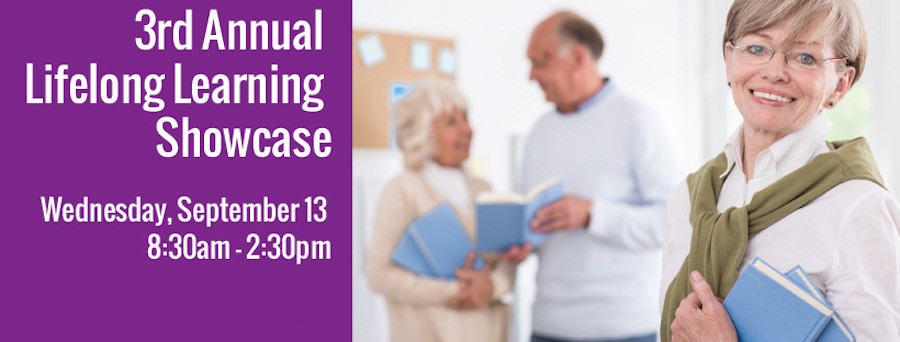
The 3rd Annual Lifelong Learning Showcase is an exciting, jam-packed event for lifelong learners to experience the best instructors and topics our region has to offer. Hosted by the SunCoast Alliance for Lifelong Learning, this popular event includes 24 course sessions of which participants may choose four to attend, continental breakfast, a box lunch, exhibits, sponsor merchandise and more. Louise Gallagher an Educator and Certified Life Coach, will be giving an informed and insightful talk about ‘retirement: who needs it?’. Put your thinking cap on and get into the back to school spirit because SunCoast Alliance for Lifelong Learning can't wait to teach you something new.
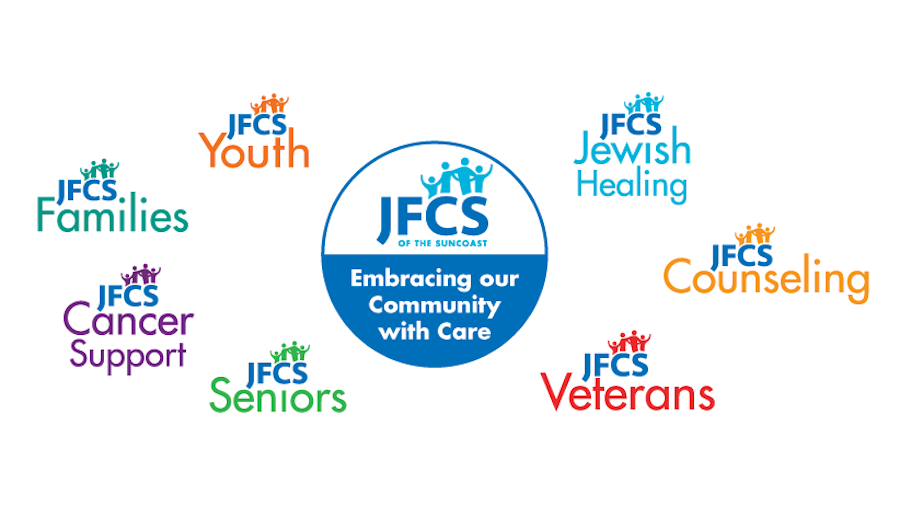
JFCS of the Suncoast has achieved a perfect score from the Council on Accreditation. The accreditation process, reviews JFCS seven key program areas for youth, seniors, cancer support, Jewish healing, counseling, veterans and families. These services include case management, education, substance abuse, mental health, crisis response and community living support. JFCS is proud to have earned this achievement and hopes to continue increasing their standards for excellence. 
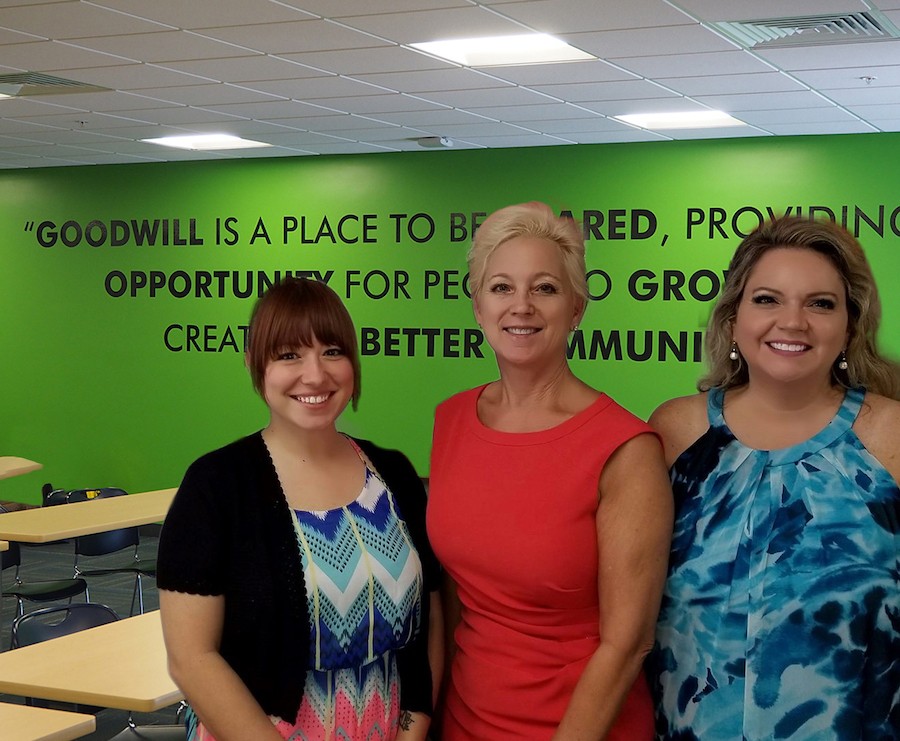
In collaboration with June Braithwaite, member of the Society for Financial Awareness (SOFA), Goodwill Manasota will host a monthly workshop series focusing on financial literacy as part of their Good Neighbor Program. SOFA is a nonprofit public benefit corporation whose mission is to provide financial education across America one community at a time. Braithwaite is a Certified Compensation Professional and a member of Society for Human Resource Management; she has been a speaker at the Employer HealthCare & Benefits Congress. Workshops are free, open to the public and take place the first Wednesday of the month in the community rooms of Goodwill's Cortez and Lakewood Ranch locations. 
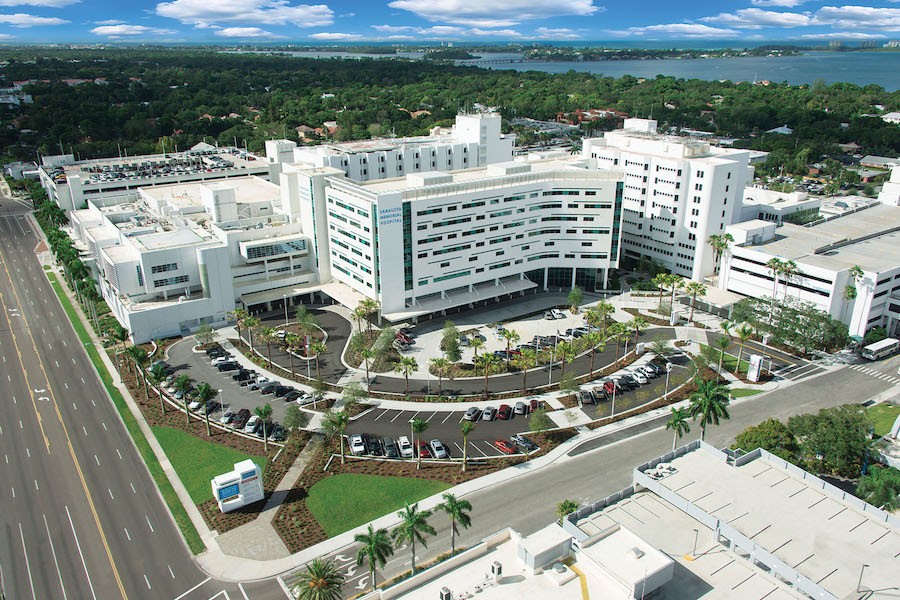
Sarasota Memorial Hospital was one of only 48 hospitals nationwide to earn the top “high performing” ratings in all inpatient procedures and conditions evaluated in U.S. News' 2017-18 “Best Hospitals” report. The annual study focuses on care provided to Medicare patients because they often have more complicated conditions upon admission and more advanced illnesses than those of younger patients. This year’s ratings again earned SMH a spot on the “Best Hospitals” list for South Florida. The health system was also recognized among the nation’s top 10% highest performers in the adult specialty Gastroenterology and GI Surgery. Barely 1 percent of the 4,500 hospitals evaluated got the top rating across the board. Sarasota Memorial CEO David Verinder attributes the hospital’s consistently high rankings over the years to the diligence and dedication of its physicians, staff and volunteers, as well as the support and governance of the publicly elected Sarasota County Public Hospital Board. 
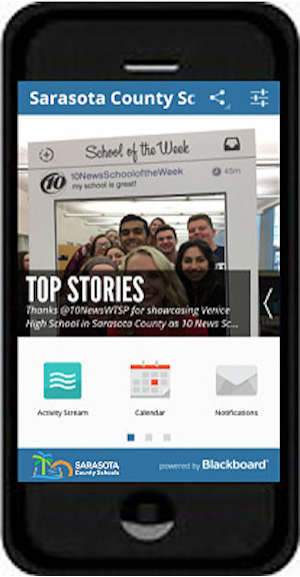
In conjunction with the start of the 2017-18 school year, Sarasota County Schools has introduced a new mobile app to help keep parents and community members informed about district news and events. Created by the district and education technology firm Blackboard, the free app is available for download by searching “Sarasota County Schools” on the Apple or Android App stores. On the app, parents can choose specific schools to follow, access district calendars and lunch menus, keep up with their favorite school sports teams and see news and social media posts from the district. 

CareerEdge and the Foundation for a Healthy St. Petersburg have partnered to address the training and development needs for differently abled Pinellas County residents. CareerEdge has hired Jennifer Evans of Meraki Strategic Group to lead this initiative. This partnership is intended to bring CareerEdge’s workforce development expertise to uncover, address, and resolve some of the complex barriers to employment. This will result in better service, customized training, increased job placement, and financial stability for the target population, decreasing unemployment in Pinellas County. 
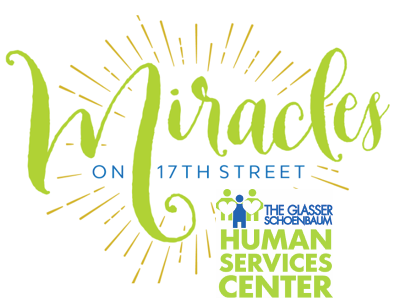
DCF Run for Your Life will not be held this year however Glasser Schoenbaum will be hosting another enticing event! On November 19th at 5:30pm Glasser Schoenbaum Human Services Center iwill host a celebration of the everyday miracles made possible by their campus partners, a collaborative of more than 18 nonprofit agencies providing over 80 programs to those most in need, and get a first look at future miracles to come. Miracles do happen but not without the commitment of a collaborative community and the support of people like you. For questions about this event, please contact Sarah Glendening at (941) 365-4545 or sglendening@gs-humanservices.org 

SRQ DAILY is produced by SRQ | The Magazine. Note: The views and opinions expressed in the Saturday Perspectives Edition and in the Letters department of SRQ DAILY are those of the author(s) and do not imply endorsement by SRQ Media. Senior Editor Jacob Ogles edits the Saturday Perspective Edition, Letters and Guest Contributor columns.In the CocoTele department, SRQ DAILY is providing excerpts from news releases as a public service. Reference to any specific product or entity does not constitute an endorsement or recommendation by SRQ DAILY. The views expressed by individuals are their own and their appearance in this section does not imply an endorsement of them or any entity they represent. For rates on SRQ DAILY banner advertising and sponsored content opportunities, please contact Ashley Ryan Cannon at 941-365-7702 x211 or via email |
Powered by Sarasota Web Design | Unsubscribe





